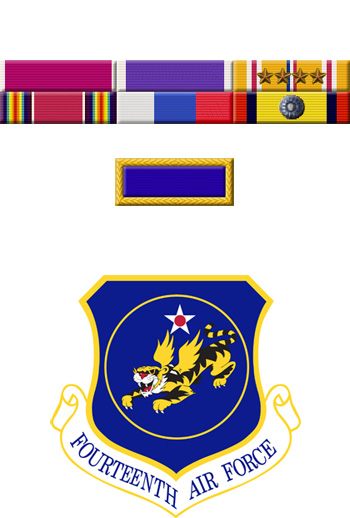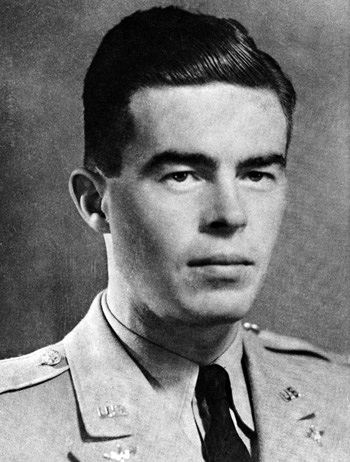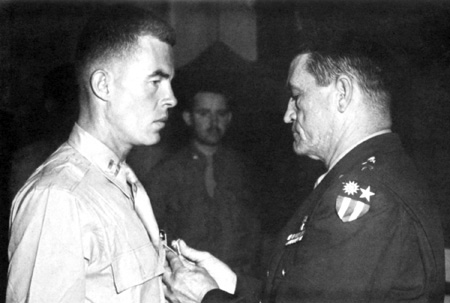
|
John M. Birch |
 |
|||
| Rank, Service | ||||
Captain, U.S. Army Air Forces |
||||
| Veteran of: | ||||
|
||||
| Tribute: | ||||
John Birch was born on May 28, 1918, in Landour, India, to Baptist missionaries George S. Birch (1892-1992) and Ethel M. Birch (1890-1977). He and his family returned to the United States in 1921, and he was raised in New Jersey and Georgia. John graduated from Mercer University in Macon, Georgia, in 1939, and then attended the Bible Baptist Seminary in Fort Worth, Texas, graduating in 1940. From 1940 to 1942, John served as a Baptist missionary in China, and continued to serve through 1945 after joining the U.S. Military. In April 1942, he aided the Doolittle Raiders after they crash-landed in Japanese-controlled areas of China by helping them get to friendly territory. Jimmy Doolittle recommended John to Gen Claire Chennault and Chennault awarded Birch a commission in the U.S. Army Air Forces on July 2, 1942. He went on active duty as an Intelligence Officer with Headquarters, China Air Task Force, at Kunming, China, beginning on July 4, 1942, and he served with that unit until it disbanded and was replaced by the 14th Air Force at Kunming in March 1943. Capt Birch served as an Intelligence Officer with Headquarters Squadron, 14th Air Force, and deployed throughout China on clandestine missions, from March 1943 until he was murdered by Chinese communists while traveling to reach Allied personnel in a Japanese Prisoner of War camp on August 25, 1945. Capt Birch also worked for the Office of Strategic Services (OSS) during World War II, but managed to continue his missionary work to the Chinese people at the same time. He was buried on a hill overlooking Hsuchow, China. The John Birch Society was named in his honor on December 9, 1958, and he is considered to be the first casualty of the Cold War. Because the U.S. Government did not want to bring attention to what the Chinese communists had done, he has never been awarded the Purple Heart for his death at their hands. He was also recommended for the Medal of Honor, the Distinguished Service Cross, and the Silver Star; none of which were ever awarded to him for his heroism in China. |
||||
|
||||


